I know so many of you can't wait for the arrival of Downton Abbey's second series to hit the screens in the USA this weekend. I'm afraid I couldn't wait, so I ordered the UK DVD set and was able to watch the whole series over a three-day period some weeks ago (one of my best investments – a code-free DVD player!). Not only am I rather hooked on the series, but this time – as you know – I was particularly interested in how the Great War would be depicted on the home front, especially given the wires that seem to ensnare this particular cast of characters, whether upstairs or below stairs.
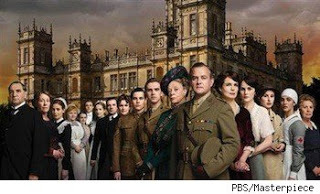
I'm not going to give any spoilers here, that would be so unfair, however, I'll just say I was interested to see how the women were portrayed in this series, especially given my interest in women's lives during the 1914-18 war, and how those changes impacted their futures in the following decades. It seemed that each of the Crawley sisters represented the different ways in which women became more independent, how they experienced having a voice and a choice, and then exercised that new freedom. In them we see both the joys of discovery and the disappointments that can accompany taking a road never before traveled. See what you think when the series airs, and in the meantime, I'll be coming back, posting on this blog about the lives of women during that era.
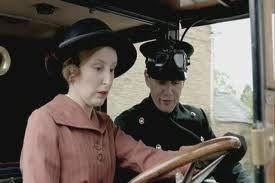
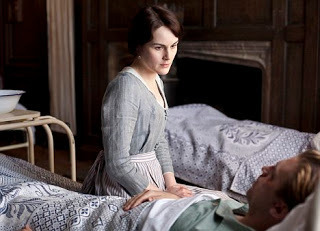
The naysayers were out in force when the second series of Downton Abbey aired in the UK. There were criticisms regarding language (for example, the fact that someone's young man was referred to as her "boyfriend" – which was not used in those days), and comments about costumes and whether so-and-so really would have worn tweeds, or whatever. While I like to see authenticity, we have to remember that this is a story, and in a story sometimes to keep the viewer engaged, one has to sacrifice fact to get to the truth. And I don't think the overall truth of the time period was compromised – the series focuses on a family in the upper echelons of society, with only brief glimpses of those on the ladder's lower rungs. The impact of war is a bit rosier than it might have been, but you get a sense of how some aspects of life will never go back to the way it was before, no matter how much the Dowager might want the pre-war status quo established again.
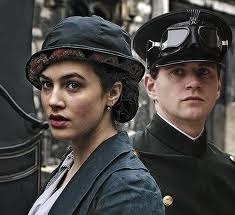
I still think, though, one of the most poignant moments is when the young Lady Sybil says, "Sometimes it feels as if all the men I ever danced with are dead." And that's what interests me and brings me back to this period in history time and again: 750,000 young men killed in Britain alone, 1,350,000 severely wounded, and – according to the latest estimates – over 200,000 profoundly shell-shocked. And after the war, two million women of marriageable age for whom there was little chance of finding a partner to share life and have a family, were considered "surplus." Now I'm looking forward to Series 3 – I want to know what happens to those Crawley girls. And of course there's – uh-oh, better not say any more ...
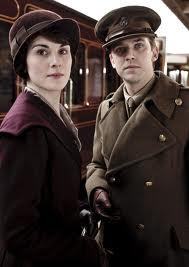
Enjoy your visit to Downton Abbey this weekend. I'm expecting the DVD of the "Christmas Special" which aired on December 25th in Britain to arrive any day now. Waiting was never my strong suit!
Next week: Those Magnificent Women & Their Flying Machines.

 newest »
newest »
 newest »
newest »
 I have read the first 4 Maisie Dobbs books and I am totally in love. I too am enjoying the DA and Maisie time connection. I am encouraging my friends to read your series as they are DA fans as well. My friend calls the series, "Melodramatically delicious". I have learned so much history and love every second your books also. I am will be going to England in the spring and so excited to see some of the cities and villages myself.
I have read the first 4 Maisie Dobbs books and I am totally in love. I too am enjoying the DA and Maisie time connection. I am encouraging my friends to read your series as they are DA fans as well. My friend calls the series, "Melodramatically delicious". I have learned so much history and love every second your books also. I am will be going to England in the spring and so excited to see some of the cities and villages myself.
 I'm also a huge fan of your series. My grandfather served with the French medical corps and my great-uncle served with the U.S. cavalry during the "Great War." We have many aging newspaper clippings from the era that spurred my interest first in history and then in your series. But what I really want to know is where do you get a code-free DVD player! Patience is not my strength either.
I'm also a huge fan of your series. My grandfather served with the French medical corps and my great-uncle served with the U.S. cavalry during the "Great War." We have many aging newspaper clippings from the era that spurred my interest first in history and then in your series. But what I really want to know is where do you get a code-free DVD player! Patience is not my strength either.








